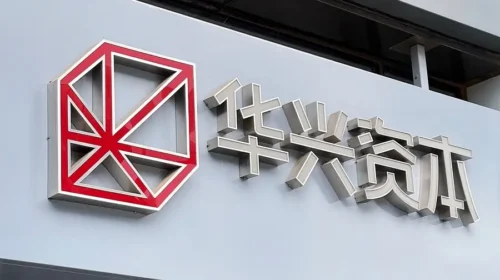NetClass offers lesson in diversity with globalization strategy

The edtech company’s shares have performed well since their Nasdaq debut last month, helped by its new venture outside the fickle China market
Key Takeaways:
- Shares of NetClass have climbed by 11% in the two weeks since the company raised $9 million in its Nasdaq IPO
- The Shanghai-based provider of smart classroom software is getting a revenue boost from its global operation run from a second headquarters in Hong Kong
By Edith Terry
A strong 11.4% rise for shares of NetClass Technology Inc. (NTCL.US) in the two weeks since their Dec. 13 Nasdaq trading debut may have surprised some, given the relatively weak sentiment towards other Chinese edtech stocks these days. NetClass raised a modest $9 million in the listing after selling its IPO shares for $5 each, representing the middle of their range. But the stock has trended up nearly every day since, pushing the company’s market cap past the psychologically significant $100 million milestone at its latest close of $5.85.
So, what’s NetClass’ secret? It may be the company’s decision to build a business abroad, starting in Hong Kong and possibly beyond. The background to this story is the well-worn narrative of China’s destruction of a thriving after-school tutoring industry in 2021, when government regulators decided that such services were stressing kids out and shut most of the industry down.
NetClass also took a hit from the crackdown, but not the way you might think.
The company has two revenue streams, both selling products to business customers. One comes from selling subscriptions for its software as a service (SaaS) products, and the other from developing education-related applications. NetClass claims to be one of China’s leading online education brands, with modules for services including teaching management, campus management, online teaching, online exams, epidemic prevention, education credit blockchain systems and lecturer evaluation services.
It began preparing to list as early as 2022 when China’s strict pandemic controls were still in effect and online education was widespread. But it didn’t complete the IPO that year, and stated a fundraising target of $17 million in an updated application in 2023. It lowered that fundraising target to just $9.9 million in yet another update in March last year, back when sentiment towards China stocks was still weak.
But its business in its core China market was deteriorating even as preparations began for its most recent listing attempt. In the six months through March 2024, the first half of its fiscal year, revenue increased by 15.6% to $3.8 million, slowing from 19.8% growth from its fiscal year through September 2023, according to its prospectus. What’s more, its loss in the six months to March last year nearly tripled to $2 million from $723,000 a year earlier.
The company was profitable in its fiscal year through September 2023, with net income up by 22.3% year-on-year to $162,229. But signs of trouble were already showing in its gross profit, which declined by 22.4% to $2.3 million over that period.
While China’s edtech sector never fully disappeared after the 2021 crackdown and has come back since then, it is very different from its peak in 2020, when $10.5 billion in venture capital poured into the sector. NetClass demonstrates some of the current challenges.
Government grant boost
During the pandemic, the sector was buoyed in part by government grants for remote learning. According to a yearly report on the industry by NetEase, the domestic online educational services market in 2023 grew 14.17% year-on-year to 413.3 billion yuan ($56.62 billion), continuing a rebound from a low of 322 billion yuan in the crackdown year of 2021.
NetClass, like other companies, came to depend on those grants. “In prior years, customers benefited from certain government grants during the Covid outbreak for remote learnings,” NetClass said in its prospectus. “Since the related government incentive policy stopped after Covid in fiscal year 2023, some of these customers switched to training packages with lower fees after the expiration of the original service contracts or stopped services. This was not anticipated in our original plan for developing SaaS subscription services.”
As customers defected to cheaper products with the end of government assistance, revenue from NetClass’s SaaS subscription services nosedived by more than half from $5.9 million in the fiscal year through September 2022 to $2.8 million in the next fiscal year. The decline appears to be a one-time phenomenon. But even so, subscription services were flat in the six months to March last year, up just 1.8% over the same period a year earlier.
Meanwhile, revenues for application solutions, which are one-time and project based, increased by 145.9%, from $3.4 million in the fiscal year to September 2022 to $8.3 million a year later. In the six months to March 2024, application development services continued to rise by another 24.8% year-on-year to $2.4 million, helping to offset the weakness in SaaS subscriptions.
While the shifting business mix may be relatively radical, it appears to be saving NetClass from falling into revenue stagnation or even contraction.
The big jump in application solutions revenue comes from a bold decision in 2023 to set up a second headquarters in Hong Kong. As part of the move, it spent $2 million in October 2023 on a third-party AI developer of large language models (LLM) for English language learning. As it built up that part of the business, NetClass’ R&D expenses ballooned to $2.2 million in the six months through March last year from just $310,730 a year earlier. But the international business has quickly gained traction, providing more than half of the company’s revenue in the first half of its fiscal year through March 2024.
“As Hong Kong is a bridge between Mainland China and overseas, the company focuses on Hong Kong and effectively expands its application development business, including data storage and computing equipment, and technical services,” the prospectus says. “Furthermore, the company hopes to expand its market in Southeast Asia in the future.”
Despite the relatively warm welcome for NetClass on Wall Street, investors have yet to warm up again to China’s broader edtech sector after many were burned in the earlier crackdown.
Corporate learning business YXT.com (YXT.US) raised $25 million from its Nasdaq IPO in August, but its shares have dropped nearly 80% since then. And shares of Gaotu Techedu (GOTU.US) fell by 40% last year, despite its reinvention as a lifelong learning edtech company. Shares of sector pioneer New Oriental Education (EDU.US; 9901.HK) also fell 12.4% last year, while TAL Education (TAL.US) lost over 20% despite strong revenue growth.
NetClass’ strong debut has given it a price to sales (P/S) ratio of nearly 9, which seems to show the market thinks it is doing something right with its global diversification strategy. New Oriental and TAL trade much lower with a P/S ratios of 2.3 and 3.3, respectively.
To subscribe to Bamboo Works weekly free newsletter, click here






